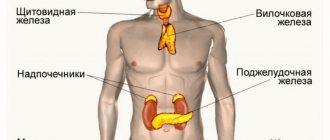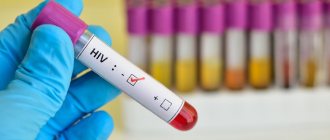Full text of the article:
When the sun appears in the sky more and more often, and thoughts about summer and the long-awaited beach season are in our heads, many people have a desire to lose a few extra pounds.
Hence the seasonal popularity of various types of diets. Of course, diets are not tied to a specific time of year, they only help people get closer to the desired ideal in beauty, but it is important that the pursuit of beauty does not harm health. Most diets are based on dietary adjustments
.
Some recommend picking up a calculator and starting counting calories
, others recommend
giving up some foods
, and still others recommend locking the refrigerator and trying
therapeutic fasting
. But do not confuse fasting with a hunger strike. Therapeutic fasting does not involve complete abstinence from food, but only following a routine.
The essence of the disease
The main symptom of the disease is overeating. It usually becomes a reaction to stress. At the same time, food can be perceived as punishment. The amount of food consumed during attacks significantly exceeds the standard. At the same time, a person cannot accurately determine whether he really feels such strong hunger.
The patient hides the disorder in every possible way: in public he eats as usual or even less, and loses control in solitude. After this, he feels guilty for what happened and forcibly cleanses his stomach. More often, people with such a mental disorder induce vomiting and use laxatives. The disease periodically recurs: each new round lasts about three months. Episodes of overeating occur at least once a week.
How does bulimia manifest?
To begin with, it is necessary to clarify how such a violation manifests itself. From here the nature of many complications will become clear. From a physiological point of view, with bulimia the following are observed:
- regular induction of vomiting (over time, a reaction of spontaneous cleansing of the stomach is developed);
- destruction of tooth enamel;
- enlargement of the parotid salivary glands;
- inflammation of the esophagus;
- frequent infectious diseases;
- menstrual irregularities;
- metabolic disease;
- deficiency of micro- and macroelements;
- general weakness.
In more severe cases, disorders of the liver, kidneys and heart are diagnosed. The mental signs of bulimia cannot be ignored. This is the inability to control eating behavior, problems with the perception of one’s appearance, feelings of guilt or the desire to punish oneself.
Contraindications and limitations of fasting
For all its advantages, fasting is also a kind of diet, so you cannot practice therapeutic fasting all the time. Recommended duration of courses: from 2 to 6 weeks
, depending on the preparedness of the body.
Before experimenting with therapeutic fasting, you need to be examined by a doctor
to find out about possible contraindications and limitations. If possible, it is better to be under the supervision of a doctor for the entire fasting course, so that if necessary, interrupt the experiment or adjust the regimen.
Possible contraindications
Some diseases can be used for fasting, for example, diabetes mellitus, weight loss, the presence of cancer, kidney or liver diseases, etc.
In this case, the doctor makes the decision about the safety of therapeutic fasting. There are also absolute contraindications
. These include: pregnancy and breastfeeding, anorexia, bulimia, compulsive overeating, menstrual irregularities. Also, therapeutic fasting is not allowed for teenagers under 18 years of age and elderly people over 75 years of age.
General characteristics of the consequences of bulimia
It is clear that an eating disorder affects many systems in the body. After treatment of the underlying disease, the patient will have to deal with a complex of complications localized in:
- oral cavity;
- digestive system;
- endocrine system;
- nervous system.
The consequences of mental illness invariably affect the skin, the health of which is then difficult to restore. Bulimia nervosa weakens the immune system. As a result, a person becomes more susceptible to infections. If you do not start timely treatment, complications from the cardiovascular system will appear. For women, there may also be consequences for reproductive function.
What is it really like?
Recent studies show that limiting food intake to 2-3 times a day, while maintaining the same calorie intake, leads to normalization of intestinal microflora, improvement of circadian rhythms, helps fight inflammatory processes and has a number of other positive effects. Thus, eating in small portions throughout the day is no healthier than eating fully two to three times a day (except in cases where small meals are prescribed for medical reasons).
Often fractionated meals are prescribed for diabetes mellitus. In one recent study, patients with type 2 diabetes were divided into two groups: the first group ate solid meals twice a day, the second group ate six small meals a day. Patients in the first group had more pronounced reductions in body weight, fatty liver, lower fasting plasma glucose, and improved insulin sensitivity compared to those who divided the same amount of calories into six meals.
The mechanisms explaining these results are most likely associated with fluctuations in the level of satiety hormones (insulin and leptin) during fractional nutrition, which contribute to the formation of tissue resistance (immunity) to their action. This, in turn, leads to changes in the metabolic process and affects human eating behavior. Thus, split meals over time can cause increased appetite, obesity, and increases the risk of developing type 2 diabetes and cardiovascular diseases.
Consequences for the oral cavity
A common symptom of bulimia is erosive destruction of tooth enamel. The reason for this is frequent episodes of vomiting. Along with food, the stomach also expels a small amount of juice. It contains hydrochloric acid, which corrodes enamel. The more often a person vomits, the stronger the acid attack on the teeth. In addition to caries, the following are observed in the patient’s mouth:
- unpleasant odor due to constantly introduced bacteria;
- salivary glands enlarged due to inflammation;
- ulcers on the mucous membrane (injuries are usually caused by nails when inducing vomiting).
The patient’s teeth often turn yellow, become sensitive, and react to cold and hot foods. The gums become inflamed, which, if left untreated, can lead to periodontal disease. Without timely treatment, this threatens tooth loss.
Fasting allows you to experience the taste of food more vividly
Food is a source of pleasure, as nature intended. When we eat food that we like, it triggers the release of dopamine. During fasting, the body does not receive this same dopamine, what happens? What happens is that the dopamine receptors become more sensitive, and then when we start eating again, we feel more pleasure from those foods that had become completely ordinary before the fast.
The typical principle of increasing the body's tolerance works here. Any pleasure we experience is a release of dopamine. For example, why do drug addicts have to constantly increase their dose? The fact is that the body developed tolerance to yesterday’s dose, in other words, it began to release less dopamine. And in order to get the same pleasure today as yesterday, a person is forced to increase the dose.
Much has already been said about the fact that food is, in a sense, a drug, and in this case this statement could not be more relevant, because the principle of getting pleasure from food is the same. You can easily see this for yourself. If you eat your favorite dish every day, in a month you will eat it like grass - without any emotions, and in another month you will hate it. On the contrary, if you refrain from eating your favorite dish for some time, then the feeling of pleasure will be much brighter. Because the body has become unaccustomed to this dish and, with its new appearance in the diet, reacts to this with a much greater release of dopamine.
Based on this, fasting can also help reduce the amount of food consumed. As mentioned above, when the body develops tolerance to one or another type of pleasure, it is necessary to constantly increase the dose so that this pleasure becomes bright and rich again. But this is a road to nowhere. In the context of nutrition, this leads to overeating, and the volume will grow exponentially.
And fasting can solve the problem. After fasting, your normal diet will give you a lot of vivid emotions and sensations, and you will feel it yourself. Moreover, you will begin to experience joy from simple, ordinary plant foods. And perhaps this will allow you to give up junk food.
Why is inflammation of the salivary glands dangerous?
This eating disorder is usually accompanied by enlargement of the parotid glands. This happens due to an inflammatory process of a bacterial nature. Pathogenic microorganisms are carried in vomit. Usually the enlargement of the gland is insignificant, but sometimes it can be seen even from the outside (it seems that the patient’s jaw is swollen). Such severe inflammation may be accompanied by:
- swelling;
- redness of the skin;
- fever;
- pain.
Purulent discharge from the salivary duct is possible. In this case, medical intervention is required - opening and drainage. Otherwise, a ruptured abscess will lead to blood poisoning. Next, treatment with antibiotics is carried out, which, with ongoing bulimia, does not give much results due to re-infection.
Fasting triggers the regeneration process
Fasting triggers the production of growth hormone, which helps restore damaged cells and tissues. Scientists at the University of Southern California came to this conclusion during experiments on laboratory mice. Thus, a period of hunger in rodents triggered the production of hormones in the pancreas in their body, which led to the restoration of damaged cells and tissues, as well as rejuvenation of the body: www.cell.com/cell/fulltext/S0092-8674(17)30130-7.
But that's not all. The study found that the rodents' blood sugar levels normalized, again due to the fact that the process of producing hormones in the pancreas, and in particular insulin, was launched. Thus, fasting can naturally restore the process of insulin production in the body and, therefore, cure diabetes without medication.
The process of triggering the production of hormones also leads to the fact that a person’s immunity increases. Californian scientists came to this conclusion: news.usc.edu/63669/fasting-triggers-stem-cell-regeneration-of-damaged-old-immune-system/. In their research, they discovered that during a three-day fast, the immune system is regenerated and, moreover, the process of formation of white blood cells, which are more effective in fighting disease, is launched: so to speak, white blood cells, version 2.0.
Thus, the myth that fasting weakens the body and should never be practiced during illness is nothing more than a myth. It is fasting that starts the process of activating the immune system and restoring damaged organs and tissues. Even simple observation of animals allows you to notice that as soon as they get sick, they refuse to eat for some time.
Those who have pets have probably been convinced of this more than once. And all because animals have this at an instinctive level. But people have gone too far from their nature and therefore stopped hearing its voice.
Consequences for ENT organs
With bulimia, the throat often suffers. On the one hand, the cause is the same vomiting, which irritates the tissues. On the other hand, microtraumas have an effect - by pressing on the root of the tongue, a person often injures the mucous membrane. Against this background, a set of unpleasant symptoms appears:
- pain or soreness;
- constant desire to cough and clear your throat;
- inflammatory diseases due to wound infection.
It is not difficult to get an infection. If a patient does not control hunger, he is unlikely to think about keeping his hands clean. And vomit contains a lot of bacteria. Sometimes stomach contents end up in the nose. This often causes inflammation of the mucous membrane or sinuses.
Many patients have a chronic runny nose (although weakened immunity also affects this). But there is a more serious complication. Getting vomit into the nose is dangerous due to aspiration of the respiratory tract. It provokes, at a minimum, pneumonia, and at maximum, suffocation.
Effect on immunity
Eating disorders always lead to weakened immunity. The reason is poor nutrition. No matter how much a person eats, the beneficial substances do not have time to be absorbed. It expels food from the stomach before it can be digested. This leads to undesirable consequences for the body:
- hypovitaminosis;
- lack of minerals;
- deficiency of proteins, fats and carbohydrates.
All this reduces the ability to resist viruses and bacteria. The body cannot resist them, so symptoms of diseases that are not directly related to nutrition appear. This is especially dangerous given the fact that with bulimia, much more pathogenic microorganisms enter the bloodstream than under normal conditions. The immune system experiences stress that it cannot cope with.
Effects on the digestive system
Since with bulimia a person interferes with the normal functioning of the gastrointestinal tract, numerous disorders are observed in this area:
- Esophagitis. The most common symptom of this disease. The esophagus becomes inflamed under the influence of hydrochloric acid.
- Gastritis. It is directly caused by a violation of the diet.
- Stomach ulcer. Since a person hides a mental disorder, gastritis does not receive proper treatment.
- Constipation, flatulence, bloating. These are the consequences of poor eating behavior.
- Disorder of intestinal motility. Occurs with laxative abuse.
One of the dangerous consequences of bulimia is gastrointestinal cancer. They are caused by chronic injuries to the mucous membranes, which disrupt the normal process of cell division.
Consequences for the endocrine system
The endocrine system suffers due to poor nutrition and human interference in the process of food absorption. Bulimia can cause diseases:
- thyroid gland (usually hypothyroidism);
- parathyroid gland (due to calcium deficiency);
- adrenal glands (due to increased production of the stress hormone cortisol);
- ovaries (up to anovulation).
Even women who have recovered from bulimia often face reproductive problems in the future. Since obstacles arise that prevent the body from absorbing nutrients from food, metabolism is disrupted. This is dangerous due to a deficiency of vital elements and diseases: diabetes, anemia, atherosclerosis, gout.
You can't eat if you're hungry
A comma must be placed after the second word. And that's why. When a person begins to consume a little more than zero calories, a yo-yo effect occurs in his body, which has been described many times in thousands of articles (Google it and read it - it’s the same thing everywhere in different words).
During starvation diets, weight loss occurs largely due to the loss of lymphoid tissue and muscle fibers, and not fat, which does not give up and is the last to be lost. And not from the place that was massaged, but as nature intended (we wrote about this in the text Why you can’t burn fat locally).
Weight loss during fasting will certainly be evident, but this loss will most likely come back with even more harm and weight. A starvation diet always ends the same way: a food breakdown. Firstly, because it is impossible to suddenly and forever go down to 500-700 (or even 1200-1500) calories per day, and secondly, this will be facilitated by depression developing against the background of loss of nutrients.
Bulimia and reproductive function
To produce sex hormones, the body needs nutrients, particularly unsaturated fats. If they are not there, the eggs do not mature and, accordingly, conception is excluded. Because an eating disorder interferes with the absorption of these substances, it causes infertility. In women with this problem, the follicles transform into functional cysts in the second half of the cycle. When diagnosing polycystic ovary syndrome, dietary restrictions are found in every third case.
Some physiologists also emphasize the role of the hypothalamus in the formation of infertility in such a situation. He regards a lack of nutrients as starvation and blocks reproductive mechanisms, since he regards the conditions for procreation as unfavorable.
Why you shouldn’t fast: “the yo-yo effect”
And the most deplorable result of fasting is muscle loss; as a result of an eating breakdown, a person regains his weight primarily with fat. This means that he will look worse at the same weight than before the diet (muscle is “heavier” than fat), and his daily calorie intake will also decrease, and it will be more difficult to fit into it so as not to continue to gain weight.
The toy that served as the name of the effect
This is called the yo-yo effect, when with each cycle of fasting and weight loss, a person ends up losing more muscle and gaining more fat. There is even a graph illustrating this effect:
The effect of hunger on weight loss is called the “YO-YO Effect.”
How does bulimia affect the skin?
Frequent episodes of vomiting lead to chronic dehydration. A lack of fluid in this state is constantly observed. It makes itself felt by dry skin and cracked lips. In addition to fluid deficiency, regular episodes of overeating followed by forced emptying of the stomach cause a lack of:
- protein, which maintains skin elasticity;
- vitamins that nourish it, give it a healthy color and prevent peeling;
- minerals that promote regeneration and improve oxygen metabolism.
Hair also suffers. They become thinner, dry out, and often fall out. The nail plates delaminate, break at the slightest impact and change color.
Consequences for the nervous system
The relationship between bulimia and central nervous system functioning disorders is two-way. The first, on the one hand, is often a sign of organic damage to the cerebral cortex. If the satiety center is damaged, a person becomes prone to overeating. Damage to the hunger center, on the contrary, leads to food refusal and anorexia nervosa. Among the consequences of bulimia are seizures. They are caused by electrolyte imbalance due to poor nutrition. Otherwise, when talking about the effect of this eating disorder on the nervous system, they often mean the psychological or psychiatric aspect. Let's take a closer look.
What happens during fasting?
Our gastrointestinal tract is designed in such a way that it works in two modes - digesting food and cleansing the body. And when the process of digesting food starts, the cleansing process stops, and on the contrary, when the process of digesting food stops, the cleansing process begins. Thus, to start the process of cleansing the body, you need to stop eating.
How long after giving up food does the cleansing process begin? Everything here is individual. On average, the cleansing process is thought to start when we skip two meals from our normal diet.
There are many methods and types of therapeutic and fasting fasting. The practice of therapeutic fasting became known in our country back in Soviet times thanks to Professor Nikolaev, who noticed that his patients’ symptoms of schizophrenia were alleviated when they refused food. He did not follow the traditional method of force-feeding the patients, and decided to observe what would happen.
And these observations allowed him to defend his doctoral dissertation in 1960 on the topic “Unloading-dietary therapy of schizophrenia and its physiological basis.” Does fasting really have such miraculous properties? Let's try to look at the main advantages of fasting and understand what happens during fasting:
- Fasting helps you lose weight.
- Fasting allows you to experience the taste of food more vividly.
- Fasting starts the regeneration process.
- Fasting increases intelligence.
- Fasting: what happens in the body?
How dangerous is an eating disorder for the psyche?
The very presence of such a diagnosis indicates mental disorders. They are associated not only with the loss of control over one’s own behavior. Also observed:
- constant feeling of guilt;
- tendency to self-punishment;
- non-acceptance of one's own body;
- decreased self-esteem;
- desire for isolation;
- feeling of anxiety, fear of being discovered.
With bulimia, a person hides from loved ones so that they do not catch him overeating. He is also embarrassed to eat in public, ashamed of his own appearance. However, unlike a patient with anorexia, he does not completely avoid contact with the outside world and more easily enters into dialogue with a psychotherapist. However, in both cases there is a high risk of developing depression.
During relapses of overeating, the ground is created for the formation of chronic anxiety disorders. Loathing oneself and one's body can lead to suicide attempts.
Heart complications
Dehydration caused by frequent gastric emptying affects all organs, and the heart is no exception. When there is a lack of fluid, the blood thickens and becomes more difficult to pump. The load on the heart muscle increases. Among the common consequences of bulimia, cardiologists note:
- arrhythmia - rhythm disturbance;
- bradycardia - slow heart rate;
- hypotension - decreased blood pressure;
- ischemic disease - insufficient supply of oxygen to the myocardium.
Potassium deficiency plays an important role here. This macronutrient is especially important for heart health. If it does not arrive, the function of the main organ is impaired. If left untreated for a long time, there is a risk of developing fibrillation and acute heart failure. Such conditions can lead to death.
What about weight loss with fractional meals?
Constant consumption of food, even in small portions, disrupts the biological clock and forces the gastrointestinal tract to constantly work, which does not contribute to weight loss.
And if the benefits of split meals up to five times a day are questioned by scientists, then eating six or more times a day can harm your health. Those who eat too frequently have an increased risk of developing various diseases. Apparently, it is not the fact of eating that plays a key role for the body, but the interval between meals. Fasting for 12–16 hours increases insulin sensitivity, reduces appetite, systemic inflammation, and blood cholesterol levels.
In addition, there is evidence that when providing the specified “hungry” interval, there is an increase in the production of brain neurotropic factor, which is responsible for cognitive functions and neuronal growth.
Kidney complications
An eating disorder, accompanied by repeated bouts of vomiting, inevitably disrupts the body's hydrobalance. It does not contain enough liquid to remove waste products along with it. This negatively affects the functioning of the urinary system. Especially if a person prefers to get rid of what he has eaten with the help of laxatives and diuretics.
Bulimia increases the risk of developing kidney stones. This is due to a violation of water-salt metabolism. Interfering with the digestion and absorption of food deprives the body of essential substances. The body begins to accumulate calcium, and stones are formed from its excess.
Renal failure rarely occurs. This is more common with anorexia. However, the lack of treatment for emerging dysfunction can cause more severe complications.
Diet for arthrosis
Articles - April 22, 2021
A therapeutic diet for arthrosis has a positive effect on the body’s condition and helps overcome the disease, minimizing its destructive impact.
Proper nutrition is one of the components of health. For some diseases, doctors recommend using special diets to promote a speedy recovery or improve health. Such ailments include arthrosis.
The main requirement: nutrition for arthritis and arthrosis of the joints should saturate the body with proteins, fats, carbohydrates and vitamins, as well as moisture, which prevents the ossification of articular joints and allows for greater mobility and a lower pain threshold.
What can you eat if you have arthrosis of the joints?
To optimize the healing process as much as possible, you need to know what you can eat with arthrosis, and what you should avoid eating. The list of products allowed for therapeutic nutrition is quite wide, which allows you to eat well during the treatment period and meet the need for vital substances. Diet for arthrosis recommends:
- turkey or chicken meat, which saturates the body with protein;
- sea fatty fish rich in Omega-3 acids;
- fresh herbs and fermented milk products that provide calcium;
- all types of nuts, flaxseed and oil, which are rich in vitamin E;
- porridge and rye bread are sources of carbohydrates;
- natural juices, vegetables and fruits that supply the body with vitamins;
- legumes rich in vegetable protein;
- butter is a supplier of fats.
What should you not eat if you have arthrosis of the joints?
There is also a list of foods prohibited for arthrosis. They are not beneficial, do not contribute to the improvement of the patient’s condition, and are sources of “fast carbohydrates,” the consumption of which leads to weight gain and worsening of the disease. To speed up recovery, you will have to exclude from the diet:
- any cream confectionery products, including cakes and pastries;
- buns and cookies;
- freshly baked wheat bread;
- ice cream and desserts made from whole milk and cream;
- products with added chocolate;
- fast food products;
- salted nuts, chips, crackers, croutons;
- sweet soda;
- strong drinks (tea and coffee);
- hot seasonings and sauces, especially mayonnaise;
- pickles and smoked meats;
- fatty dairy products;
- alcohol of any strength.
Arthrosis diet menu
A wide selection of products included in the list of approved diets for arthrosis allows you to create a varied menu that, despite the restrictions, will provide activity, fill you with energy and enhance the positive impact of a set of measures aimed at treating the disease and speedy recovery. Nutrition for arthrosis of the joints implies fragmentation and provides the following menu:
- immediately after getting up, you need to drink a glass of clean water in small sips, then freshly squeezed orange or pomegranate juice;
- breakfast (20-30 minutes after taking the juice): porridge cooked in water with a small amount of butter, cottage cheese dishes, fermented milk products, unsalted cheese, soft-boiled eggs, omelet, weak green tea, crackers;
- second breakfast: fruits, dairy products, nuts;
- lunch: vegetable and cereal soups, steamed meat dishes, boiled or baked fish, vegetable salads and stews, stewed vegetables;
- afternoon snack: fruits, compotes, jelly, jellies, mousses with crackers, dry cookies or bread;
- vegetable salads, stews, stewed vegetables, cottage cheese dishes; weak tea.
Is it possible to fast with arthrosis?
The issue of fasting for arthrosis directly depends on the weight of the patient. If its excess is noted, then, as a rule, the doctor gives recommendations on how to reduce it, which will bring relief and reduce joint pain. In this case, most often, we are not talking about strict fasting, but about a diet: limiting the intake of certain foods and reducing portion sizes. Therapeutic fasting for arthrosis is carried out under the supervision of a physician. In some cases, it is completely prohibited.
Is it possible to drink water if you have arthrosis?
The issue of drinking during illness can be considered in two aspects: when it comes to drinking water; about taking other liquids, including alcohol. If you have arthrosis, you should definitely drink regular water! Otherwise, the bones become more fragile, and the connective tissue becomes calcified, which leads to decreased mobility of the joints and their deformation. To saturate the body with moisture, you need to drink 2 to 3 liters of water per day.
What else does bulimia entail?
We looked at the most serious disorders in the body that can be caused by an eating disorder. For the sake of completeness, others are worth mentioning. Their appearance is not so dangerous, but it does not go unnoticed:
- Characteristic scratches on the index and middle fingers of the dominant hand. They occur due to friction of the skin against the teeth when two fingers are inserted into the mouth.
- Haemorrhoids. This is a problem for those who like to cleanse themselves with laxatives, which increase the load on the intestinal vessels.
- General weakness. It is caused by malnutrition, low blood pressure, and concomitant diseases.
- Chronic redness of the eyes. The act of vomiting creates high pressure on the vessels of the upper body. The capillaries in the eyes burst easily and do not have time to recover.
- Decreased libido (up to complete absence). It is associated with endocrine disorders and general emotional state.
With any eating disorder, psychological stress is intertwined with physiological stress. As a result, negative health effects increase in a synergistic manner.
Importance of treatment
Bulimia has a strong impact on almost all organs. This disease requires timely detection and treatment. The sooner action is taken, the fewer complications you will have to overcome. The patient needs comprehensive assistance, involving several specialists. The Center for the Study of Eating Disorders in Moscow guarantees that each patient will be treated with:
- psychiatrist and psychologist - to combat the underlying disease;
- nutritionist and nutrition consultant - to restore normal eating habits;
- endocrinologist, gastroenterologist, neurologist and other specialized specialists - to overcome the complications that arise.
The treatment regimen is drawn up individually after a thorough examination and assessment of the patient’s condition. If possible, it is performed on an outpatient basis. If there is a threat to life and health, the patient is hospitalized in a 24-hour hospital. The Center for the Study of Eating Disorders will help overcome the disorder. You can make an appointment by phone.
Author: Kotik Marina Evgenievna,
Psychiatrist, narcologist.











